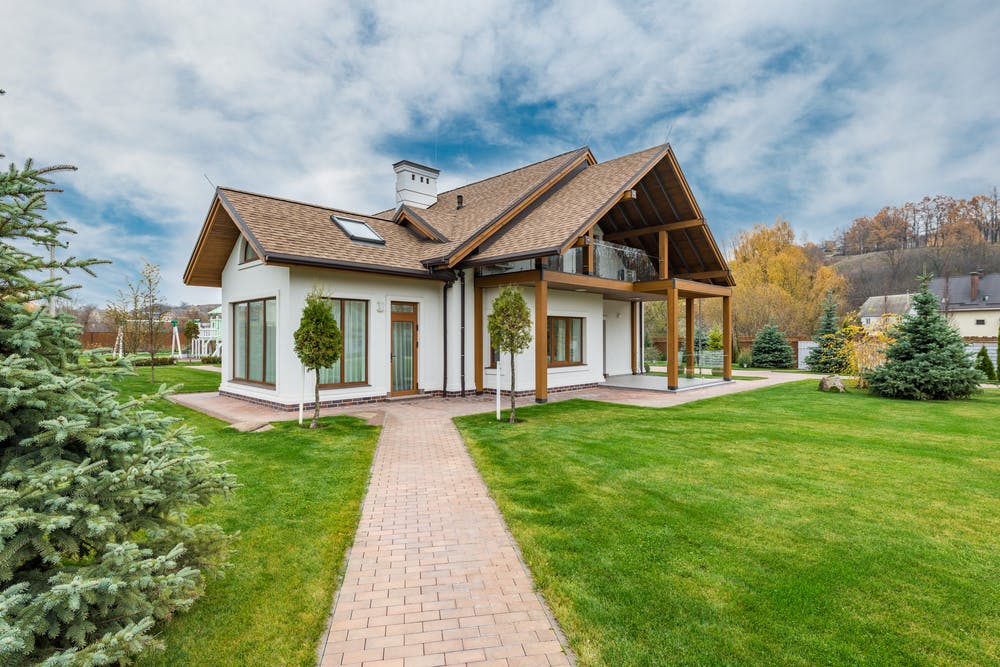There are many benefits of owning a rental property. The passive income and the promising prospects to appreciate are just a few of the perks of being a landlord. But like every other investment, every investor should consider rental property expenses when fixing their rent, so their investment doesn’t turn into a financial burden.
In this article, we’ll be covering what expenses you should consider when purchasing a rental property.
- The down payment and interest rate
The first and heaviest expense for purchasing a rental property is the net payment to acquire it. The average cost of a rental property varies by type, location, and several other factors. But you can expect to spend around $400,000 for a single-family unit and over a million for a multi-family unit. Of course, you don’t have to pay all that money upfront unless you’re paying with cash. There are many other ways you can finance your purchase, but you’ll have to make a downpayment which usually comes to an average of 6% of the home’s value. If you’re not sure how to go about it, you can always ask your mortgage broker. Following that, you’ll also have to consider your monthly repayment costs, which you can pay off over time at a particular interest rate.
- Property taxes
Another expense investors need to account for is property taxes. It varies according to jurisdiction, so it depends on the location of your investment. Also, taxes are often subject to the type of property. So consider researching the rates for different counties before you make a purchase. The taxes in some municipalities can significantly add to a home owner’s cost, while others are more lenient. Although the property taxes are often deductible, it’s still essential to contact the municipality’s board to get an idea of how much you’ll be expected to pay. You could also confirm whether these taxes include garbage removal, sewage disposal, and other services.
- Homeowners insurance
Homeowners’ insurance comes up during the home buying process and is usually included in the mortgage payments. Other than that, you might want to look into buying other forms of insurance as a necessary step to safeguard your investment. The last thing you want is to be caught off guard should your property fall prey to burglars, fire, water damage, or other elements. It’s helpful to bear in mind that this cost might vary depending on your location due to the difference in exposure.
- Maintenance
Another property-related cost is maintenance. While most tenants pay a security deposit that covers damages, as a landlord, you still have an obligation to maintain the property as well. Moreso, you’re bound to make some repairs at some point, so it would be best if you added it to your budget.
A common strategy is to budget 1% of the home value for annual maintenance, including landscaping, pool cleaning, security cameras, smoke detector batteries, and so on.
- Utilities
Most landlord-tenant leases address utility payments. Most of the time, the responsibility falls on the tenant, but occasionally, the landlord will provide some or all of these services. In such a scenario, you need to budget for your monthly utility bill. So when drawing up your agreement, factor in the cost of gas, electricity, water, laundry, and so on.
- Marketing
A misconception most people have is that it’s easy to fill up a vacancy. On the contrary, finding qualified tenants requires a lot of work and some cash. You need to anticipate the cost of taking professional photos and videos that will appeal to prospective tenants, hiring a broker to find renters, and running credit checks on each applicant. Of course, you could always skip the stress of running through so many steps by hiring a property management company to take care of it.
- Vacancy allowance
Most new investors are pretty optimistic when they acquire their first rental property and fully anticipate an annual income equivalent to 12 months’ rent. But the reality is that buffering vacancies is a part of managing rental properties. While there are ways you can avoid your apartments being empty, it’s good practice to plan for at least a two months vacancy. In that time, you might still have to cover the expenses of some utilities, property taxes, and your mortgage.
Conclusion
If you’d like to maximize your rental property fully, consider hiring a professional property manager to help with your budget, marketing, and tenant services.
The key to being a successful investor is to dutifully do your research and not only act quickly to avert a crisis but to anticipate expenses that might crop up. Miscellaneous costs you should also expect are business permits, appraisal fees, home inspection, closing costs, and association fees. While this list isn’t exhaustive, it’s a great start to give you a good idea of what to expect.












